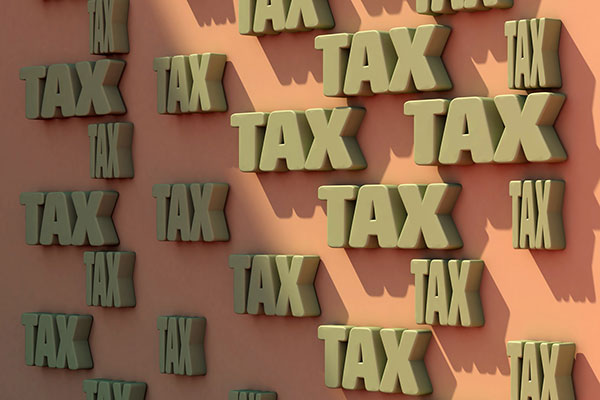Bumper tax haul offers crucial insight ahead of mini-Budget
21st September 2022 11:18
by Myron Jobson from interactive investor
Myron Jobson, senior personal finance analyst, comments on the latest HMRC tax receipts.

Commenting, Myron Jobson, Senior Personal Finance Analyst, interactive investor, says: “The latest data on tax takings is significant in context of the tax-cutting measures expected to be announced in the emergency mini-Budget. It is clear that income tax and National Insurance are money spinners for the government, with HMRC taking a bumper haul from both taxes for the period covering April to August 2022.
“The freezing of the income tax threshold in tandem with wage inflation has pushed a large number of workers into higher tax brackets. But wage growth trailing far behind inflation leaves less money in our pockets and makes it harder to save and invest to build wealth.
“This ‘fiscal drag may be a tough for some at a time when so many people are struggling to keep up with rising prices. The 1.25% uplift in National Insurance, which came into effect in October, has also exacerbated matters – despite the rise in the National Insurance threshold to £12,570 from £9,880 in July.
“Our calculations, factoring in the freeze in the basic and higher-rate tax thresholds from 2022 to 2026, found that a typical taxpayers earning £30,000 will pay an extra £1,816 in income tax and National Insurance by 2026 in real terms. That's due to the personal allowance and the National Insurance threshold not keeping pace with inflation. This amounts to £3,631 extra for a family with two average earners. For someone earning £50,000, the figures are more pronounced. They’d have to pay a £4,271 extra in income tax and National Insurance by 2026.
“So while the tax haul continues to swell, fiscal drag and rampant inflation means that pay packets aren’t stretching as far as they used to. The challenge for chancellor Kwasi Kwarteng is to find the right blend of policies to ease the cost-of-living burden and turbocharge economic growth.
“More broadly, the increase in tax receipts between April and August, up £31 billion year-on-year, could go some way in bankrolling the unprecedented level of government spending to help consumers with sky-rocketing energy costs. But, with tax cuts coming down the track, the balancing act isn't going to get any easier.”
These articles are provided for information purposes only. Occasionally, an opinion about whether to buy or sell a specific investment may be provided by third parties. The content is not intended to be a personal recommendation to buy or sell any financial instrument or product, or to adopt any investment strategy as it is not provided based on an assessment of your investing knowledge and experience, your financial situation or your investment objectives. The value of your investments, and the income derived from them, may go down as well as up. You may not get back all the money that you invest. The investments referred to in this article may not be suitable for all investors, and if in doubt, an investor should seek advice from a qualified investment adviser.
Full performance can be found on the company or index summary page on the interactive investor website. Simply click on the company's or index name highlighted in the article.